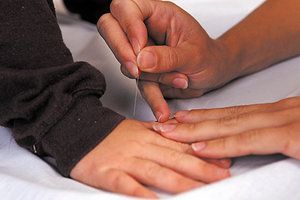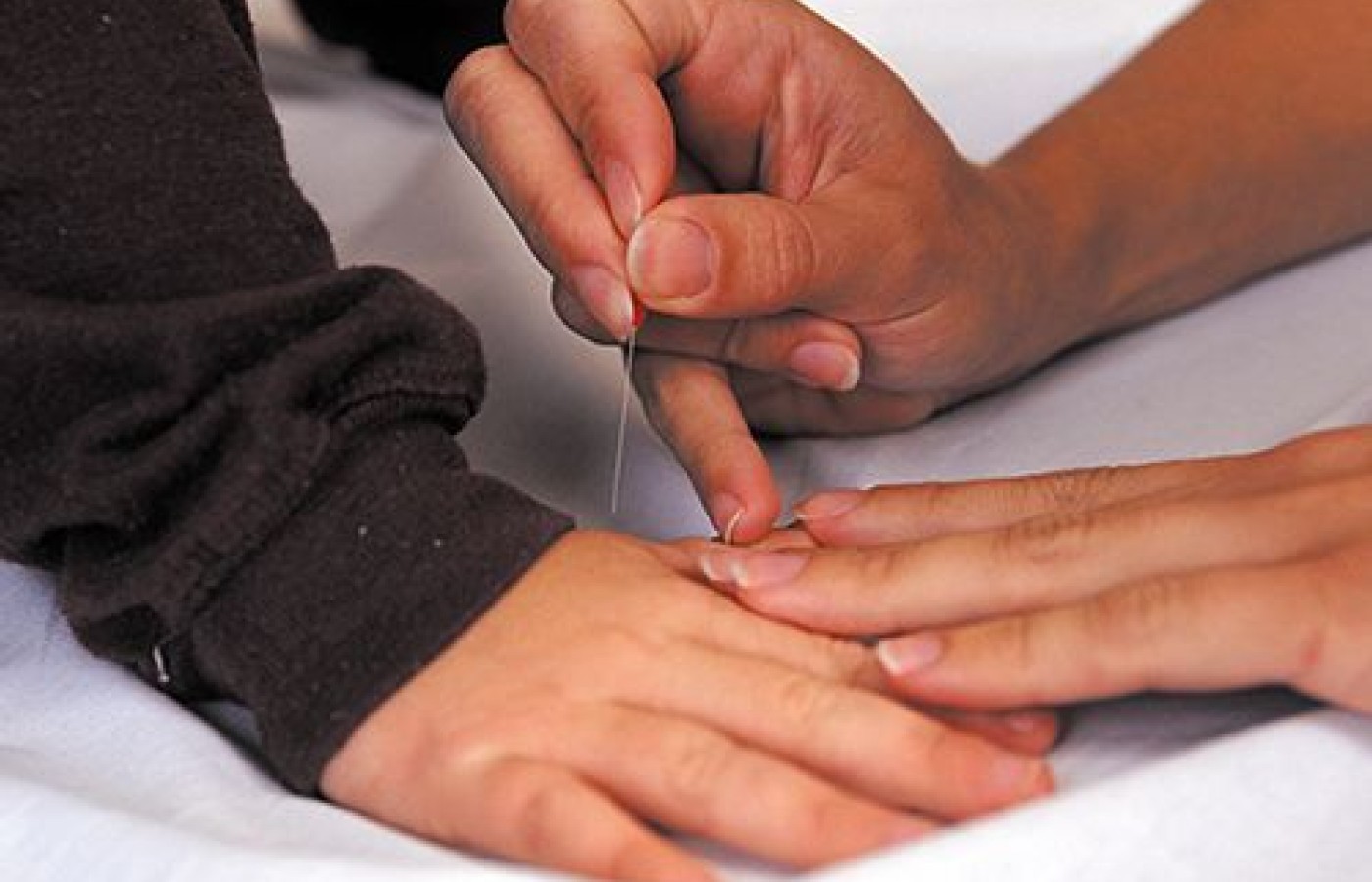The most important relationship I seek to nurture in the treatment room is the one a patient has with their own body. We live in a culture that teaches us to override pain, defer to outside authority, and push through discomfort. Patients often arrive hoping I can “fix” them, but the truth is, we can’t do the work for them. We can offer guidance, insight and support, but healing requires their full participation.
Acupuncture Detox as Part of Drug Rehabilitation
In the U.S., more than 2,000 alcohol and drug rehabilitation programs have added ear acupuncture to their practice. The development of the protocol was determined by Lincoln Hospital as it delivered 100 acupuncture treatments daily. Lincoln Hospital got their experience from Miami Drug Court, which is nationally recognized. Acupuncture offers a basis for psychosocial rehabilitation and recovery.
The leading verge of a movement is in the South Coast Rehabilitation, which considers acupuncture as a complementary treatment rather than alternative to traditional Western treatment. It is advisable that the recovery programs should have a qualified acupuncturist with a Masters or Doctorate in Oriental Medicine. The acupuncturist is able to provide individual acupuncture treatment or ear acupuncture to identify detox signs. The patients visit the rehabilitation center regularly in order to offer the best treatment. Each individual is given a basis for personal acupuncture treatment and get herbal medications if recommended. Ear acupuncture is done to most patients in order to assist the with detox symptoms on a regular basis. The acupuncture treatment combines with the extra holistic treatments of detoxification massage and primeval sound meditation for general relaxation and well-being.3
The Effects of Acupuncture Detox
Acupuncture has several characteristics that enhance overall functioning. These features involve; acupuncture acts as a non-verbal interference, which assists in reaching resilient clients. It also lessens agitation and anxiety as it facilitates the receptive and calm conduct. Acupuncture helps improve an inner reflective core in most fearful and distressed people. A common method used is the ear acupuncture. Generally, treatments are given in large crowds where clients assemble and keep quiet for 45 minutes. This process refers to the National Acupuncture Detoxification Association (NADA) protocol. Most of the jurisdiction comprises of laws that permit an extensive range of clinical personnel to be trained how to use the NADA protocol. The majority of the states approved to work with NADA protocol must be fully licensed. There are very few states, including Florida and California that works with NADA programs. However, states such as Virginia and New York have the standards of NADA Program. NADA involves some training on the way to sterile precautions and integration with social services. According to NADA, traineeship training is always essential (Cuccurullo, 2009).

In the 21st century, the NADA protocol introduced a remarkable expansion. The protocol introduced the Post-traumatic treatments where treatment is offered to members of the community. In addition, the treatments for fire fighters have been permanently introduced. Approximately 130 prisons in England are now practicing the NADA protocol. Acupuncture officers deliver all of the treatments once they are trained by Smart-UK for a five-year contract. Approximately 80% of violent incidents reduced in the jail program after the NADA Protocol were expanded. Thousands of military workers in India have utilized NADA for stress and suicidal conducts. In Northern Europe, NADA acupuncture changed the aspect of psychiatric hospital care. Currently, over three thousand nurses have been educated in 100 dissimilar public amenities. They record much less usage of isolation and benzodiazepine treatment. Migrant services in war areas acupuncture have been particularly impressive. In Thailand, ear acupuncture has been practiced for many years in diverse Burmese communities in border cities. In East Africa, NADA was introduced in May 2008 where training was done for two weeks. The real Medicine Foundation sponsored these trainings in immigrant sites. Later in 2009, the refugee trainees had offered approximately 29,000 treatments (Benzon, 2011).
The survivors of violent land dispute are supported, and soldiers are provided to guard them. Little children also get addictions hence there are treated in a diverse way from adults. They are treated using magnetic beads. This is done with acute care since some children can be suffering from night tremors, hyperactivity disorder, bed-wetting, violence-prone adolescents and autism spectrum disorders. According to reports, the U.S, Germany, England, Ireland and the Philippines have successful treatments. However, the method of magnetic beads is in the early period of appraisal. According to acupuncturists, the ear acupuncture protocol is inexpensive and safe. The ear acupuncture is an obvious and has a wider potential for use in the psychiatric ground.
Other Traditional Drug Treatments
Acupuncture is a more widely used and accepted method of addiction treatment, especially as drug detox. This is done on the part of Eastern customs and is strategized to balance to the body. The acupuncturists in drug detox emphases on five precise points on the external ear. The main objective of acupuncture is to treat obstructions, insufficiencies and stagnations that disorder the free movement of energy in the body. As stated by Smith (2012), acupuncture can affect the parts of the brain in control for pleasure and reward. According to Cuccurullo (2001), research conducted in the past 10 to 15 years, concluded that persons getting acupuncture as part of their treatment were more probable to complete detox successfully as well as remain in drug rehab treatment and avoids deterioration. This study, together with the circumstantial evidence delivered by addicts in drug rehabilitation, proposes that acupuncture may be an effective technique to ease extraction signs and drug cravings in drug detox (Smith, 2012).
In addition, it resolves nutritional deficiencies by stimulating the endocrine and digestive systems. It stimulates the natural endorphins of the body and other brain substances to help release depression and other problems that usually caused by addiction. Yoga assists in healing the injury that results from addiction by fusing the spirit, mind, and body. The inhalation and postures of yoga need addicts to watch out for their body's signs in the present period. Yoga offers a safe and natural form of stress relief to addicts instead of turning to alcohol or drugs. The advantages of yoga involve; increased coordination, flexibility, strength and stamina. Yoga improves the circulation of blood in the body. It also controls the postures and stretches the body. It relieves stress by rousing the creation of endorphins. It also assists the addicts to live a healthy life as it helps them cope with drug cravings and relapse triggers (Smith, 2012).
Acupuncture, amino acid treatment and yoga are safe and effective part of holistic drug treatment. There is a specialized form of acupuncture, which is AcuDetox. AcuDetox is done by placing five thin, hair like, disinfected, single-use pointers in the ears. The pointers are left for 35 – 45 minutes. AcuDetox stimulates the recovery and treatment process by building the strength of the inner body of an addict. Once an addict undergoes treatment, he or she becomes calm and focuses more on the counselling session and for team meetings. AcuDetox is a form of treatment that does not involve a verbal process (Smith, 2012). When the pointer is placed on the ear, the patient sits down and relaxes on a chair while the pointer does the rest task. Despite the doubts from some patients, the treatment is effective.
According to clinical research, acupuncture reduces severe and post-acute withdrawal symptoms and signs of craving related to opiate, alcohol, and cocaine addiction. It also reduces the signs associated with other addictions including headaches, sleep disturbance, sweating, muscle cramps, nausea, stress, anxiety, body aches and depression (Southcoastrecovery.com, 2014). Acupuncture is proven to have a balancing effect on the neurotransmitter and autonomic structures, which lessens drug cravings. It involves non-threatening and non-verbal modality that has an instant soothing effect on addicts despite the different substances consumed and whether there is a co-existing psychiatric syndrome that is diagnosed.4
Conclusion
Acupuncture has a unique aspect of more extensive protocols to address psychological and physical conditions that may be causing features in chemical addiction, such as grief, trauma, chronic pain, and depression. This form of treatment is helpful in the reduction of dual diagnosis of patients. Acupuncture is evident in the treatment of depression, post-traumatic stress syndrome, mental disorders and chronic anxiety. Medical acupuncture for rehabilitation is a harmless, effective, and cost-efficient process. It can easily be combined with all stages of conservative psychosocial and pharmacological rehabilitation. It is hard for humans to deal with addictions, whether it is smoking, drugs, behaviors, or food. Addictions disrupt someone lives as well as their families. This can be helpful to succeed the essential components of any rehabilitation program. Auricular acupuncture and acupuncture are beneficial equipment for curing element addictions, abuse, conducts and signs of withdrawal. It is therefore advisable for addicts to try out this form of treatment. This form of treatment will clear all the headaches, sweating, sleep disturbance, muscle cramps, anxiety, stress, body aches, nausea and depression.
References
- Acudetox.com. (2014). Home. [online] Retrieved from: www.acudetox.com/ [Accessed: 15 Mar 2014].
- Benzon, H. T. (2011). Essentials of pain medicine. Philadelphia, PA.
- Cuccurullo, S. J. (2009). Physical Medicine and Rehabilitation Board Review. New York: Demos Medical Pub., LLC.
- Smith, M. O. (2012). The use of acupuncture in addiction treatment programs. [online] Retrieved from: www.huffingtonpost.com/dr-michael-o-smith/addiction-acupuncture_b_1665796.html [Accessed: 15 Mar 2014].
- Southcoastrecovery.com. (2014). Acupuncture and drug rehab | SouthCoast recovery - Dana point, California. [online] Retrieved from: www.southcoastrecovery.com/drug-rehab/acupuncture-and-drug-rehab.html [Accessed: 15 Mar 2014].



